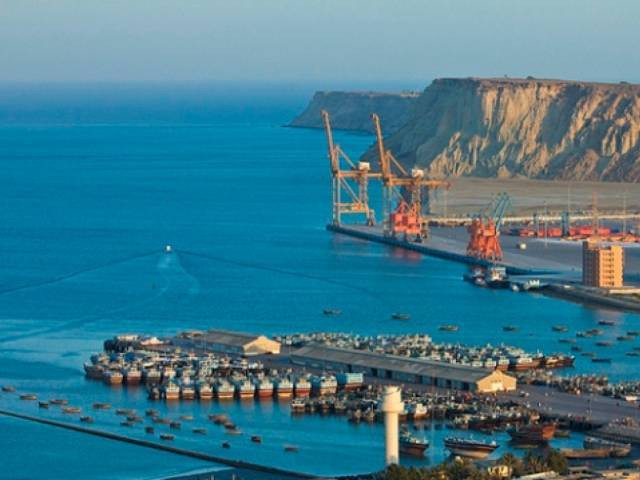CPEC project: Nascent industries afraid of big Chinese firms
Only exports from China without giving a fillip to Pakistan’s industry will be damaging

Only exports from China without giving a fillip to Pakistan’s industry will be damaging. PHOTO: REUTERS
Some business segments think that the flagship project poses new challenges to the industry in Pakistan, especially those sectors that are at the stage of infancy or smaller in size compared to gigantic Chinese industries.
China has so far poured $14b into CPEC projects
The industries in China have achieved economies of scale over the years primarily because of a huge domestic market, industrial-friendly policies and scores of incentives from the government.
Apart from CPEC, Pakistan has also not been a major beneficiary of the free trade agreement (FTA) with China as the arrangement gives an edge to Beijing and promotes more imports than exports from Pakistan.
The business community fears that if the corridor is used only for exports from China without giving a fillip to Pakistan’s industries by providing a competitive environment, it will prove damaging to the domestic industrial units.
“It is imperative for the government of Pakistan to keep in mind all these factors while negotiating the second phase of the FTA with China,” suggests Atif Iqbal, Executive Director of the Organisation for Advancement and Safeguard of Industrial Sector. He is of the view that in talks with China some leverage should be provided for Pakistan’s products to enable the local industry to compete well in the race.
“CPEC can only be beneficial if Pakistan’s exports are ramped up with facilitation for the local industry,” he says.
Sindh to set up industrial zone in cooperation with China
In order to create a win-win situation under CPEC, the two neighbours will have to pave the way for a healthy competition among different industries without cutting roots of each other through unfair price wars or dumping of goods.
A new vision needs to be developed by the two sides who will pledge to facilitate each other’s economies.
Incentives-filled policies
Individually, in order to shield its infant and vulnerable industries, Pakistan should frame policies in such a manner that these could offer incentives for giving a boost to productivity and pushing exports to China and other markets by taking advantage of the infrastructure being built under CPEC, rather than turning Pakistan into a consumer market.
Owing to electricity and gas shortages, high production costs and the terrorism and extremism threat, the domestic industries have been operating at a disadvantage over the years.
Though some gains have been made on the political and security fronts, the economic indicators have yet to show a marked turnaround. Exports, in particular, are an area of concern as shipments have dwindled to less than $20 billion from $24 billion in the past two years and are still falling.
Policy-makers should draft such policies that have a clear roadmap and a growing focus on future developments.
However, before achieving economic stability as well as economies of scale, the domestic industries are direly in need of protection. If the government desires to have sustainable industrial growth, it must not only ensure provision of basic utility services including gas and electricity, but also create an atmosphere conducive for business and strengthen the institutions responsible for keeping a check on unfair trade practices.
Effective policy implementation
Some recent government decisions such as announcement of the Strategic Trade Policy Framework 2015-18 and reactivating the National Tariff Commission are pragmatic steps for improving the situation. However, such policies will only bear fruit when these are implemented forcefully.
CPEC: Chinese work ethic and its implication for Pakistan
The tariff commission needs to be extra vigilant and take immediate notice of unfair trade practices like dumping and subsidisation of foreign goods. The survival of the domestic industry largely depends on price equilibrium in the market.
In the current scenario when free trade accords are increasingly being negotiated and signed, it is imperative for the trade regulatory authorities of Pakistan to stem the unfair trade practices and safeguard the interests of domestic industry.
The business community also wants to see that investigations are conducted timely by the tariff commission for trade remedy, strictly in accordance with the international treaties and commitments. In case of delay, the importers or exporters will take undue advantage by resorting to unnecessary litigation to abuse the process of law as has been observed in the past.
the writer is a staff correspondent
Published in The Express Tribune, November 21st, 2016.
Like Business on Facebook, follow @TribuneBiz on Twitter to stay informed and join in the conversation.





1733130350-0/Untitled-design-(76)1733130350-0-208x130.webp)












COMMENTS
Comments are moderated and generally will be posted if they are on-topic and not abusive.
For more information, please see our Comments FAQ